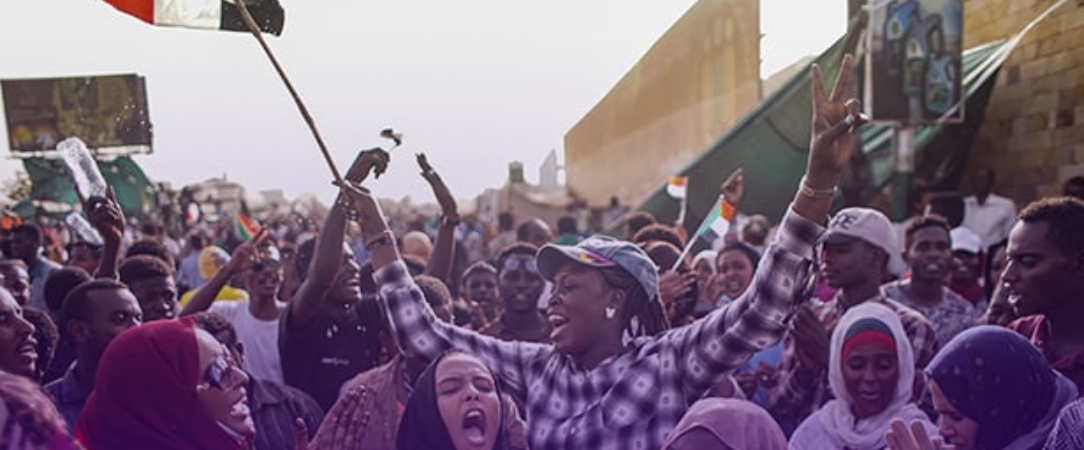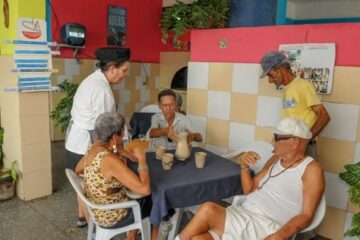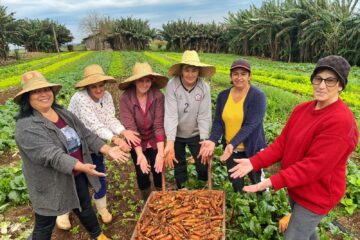On April 15th, 2023, a new crisis erupted in Sudan between the troops of Abdel Fatah al-Burhan, the leader of the country’s Army, and Mohammed Hamdan Dagalo, known as “Hemedti,” commander of the paramilitary group called Rapid Support Forces (RSF). The conflict started after the once allies disagreed over the plans to integrate the RSF into the official Army, which was one of the conditions for the Sudanese democratic transition that began in 2019. That year, the country was rocked by the biggest wave of protests in its history, which culminated in the deposition of authoritarian leader Omar al-Bashir, who had held the presidency for almost 30 years. It was a process to instate a democracy in the country.
A group of lawyers committed to a civil government and rights came up with a framework agreement, which means a transitional Constitution that included civilian arrangements to negotiate with the military and establish a civil state. This agreement had new regulations that covered many issues and themes such as transitional justice, the security council, the Army, and others related to the transition period. What was supposed to happen with the military during this period was described in the Security Secretariat regulations, which demanded that the national Army, the militias, and other armed groups be dissolved and undergo a disarmament process.
The two generals, of the Army and the RSF, were the main individuals responsible for the coup d’état of October 2021. They interrupted the entire transitional process that was going on back then and seized power after arresting the then civil interim prime minister, Abdallah Hamdok. They refused to step down and accept measures to hand over power. The military faced all the democratic demonstrations and the opposition against them by different youth groups and the civil society by killing and imprisoning people. Even so, the struggles against these military group continues.
The Rapid Support Forces were established in 2013 by the National Congress Party, mainly to be used by the regime in place, and also to guarantee the security of the dictator al-Bashir. It then evolved and became a separate force with their own regulations, advanced weapons imported from other countries, the control of gold mines in the region of Darfur, and estimated 150,000 soldiers. The national Army didn’t have any authority over them.
The framework agreement established that the RSF group should be integrated into the National Army. The leader of the Army, al-Burhan, said that this process should take two years. The leader of RSF, Hemedti, didn’t agree with that, saying that the integration should take 10 to 15 years. From this disagreement, they started a fight, in a plan to take over power and rule the country and its resources as an independent force. The violence we are seeing since 2023 is the result of the competition between these two men and their armies.
After this conflict broke out, people became victims. They suffer with the lack of food supplies and increasing rates of disease, while members of RSF have stormed different cities in the country, including the capital, Khartoum. They attack, loot, and kill people inside their houses.
Everything is inhuman. The main victims of the group are women and children, and there are so many cases of rape. There are reports of women being submitted to slavery in Darfur. They are destroying cities and villages, hospitals, and other public places. All attempts to conduct peace negotiations and a ceasefire have failed so far.
Omayma Elmardi
To flee from the violence of the RSF and the militias, people are being displaced to other states or migrating out of the country. The Sudanese people are facing a huge challenge, because they are being forced to migrate, but they don’t have the resources to go anywhere. In many countries, as in Egypt, the laws are restrictive and it’s difficult to get in. A lot of people are dying in the borders of these countries waiting for a visa.
An economic–driven conflict
The economic aspect of this conflict is clear: the military and the RSF are competing for the control of the country, which is rich in natural resources. The RSF controls rich areas of the country, specifically in Western Sudan, where there are gold mines. They were granted control over these areas by the military government when they were still responsible for the security of al-Bashir. They have profited, expanded, and benefited in every possible way from gold mining and exporting, especially to the United Arab Emirates. The leader of the RSF, who is also the person responsible for the mining operations, had a company responsible for trading gold outside Sudan. He became very rich, and people are trying to call attention to these practices of corruption of exploitation and control of resources.
Our demand is for the RSF to be defunded, disarmed, and reintegrated as civilians.
Omayma Elmardi
The Army, on the other hand, is affiliated to the National Congress Party with its own economic interests. They ruled Sudan for 30 years and were involved in practices of all kinds of corruption that made their wealth possible. The leaders of the party became very rich, and their fortunes were kept in international banks in Turkey, Malaysia, and other countries. Most of these people are living in these places and enjoying their lives with their families with the money of Sudanese people.
Besides the direct conflict between the RSF and the Army, other parties are involved at the international level. Chad, Niger, Mali, Central African Republic, Saudi Arabia, and the United Arab Emirates are directly inside the conflict. The Emirates has provided weapons and Libya has provided men to the RSF.
As long as these countries continue to profit from Sudanese resources, they will continue to support the conflict.
Omayma Elmardi
The struggle for democracy
The country is divided between political parties and groups that fight for a democracy to be established, and others that support the military. However, civil society organizations have been struggling for a long time to overthrow the authoritarian regime that was in power. That is what we saw in December 2018 with the revolution. And they are still struggling.
Women have been involved in so many organizations, working in different fields to support other women in the conflict zones. They work to provide basic services, health and education support, and organize training in leadership and human rights to empower women. Women have been struggling to bring about peace, and against the violence they suffer in their territories, but also institutionally.
The struggle continues as many women networks are trying to engage more people in the peace process that is taking place, including promoting campaigns nationally and internationally to pressure the two parties. Women are making efforts to be part of any negotiations for peace, to make sure that women’s agenda will be accommodated. We defend that the agreement for peace should involve all Sudanese sectors.
The World March of Women is active in this struggle, despite the fact that some of its members have had to flee the country. The women who are still in the country are trying to organize humanitarian work, to communicate and to defend our people, activating feminist support in petitions and messages that raise awareness of the conflict.
_______________
Omayma Elmardi is a member of the World March of Women in Sudan and is currently living in Egypt. For more context on the Sudan conflict, read our article explaining the 2021 coup.




